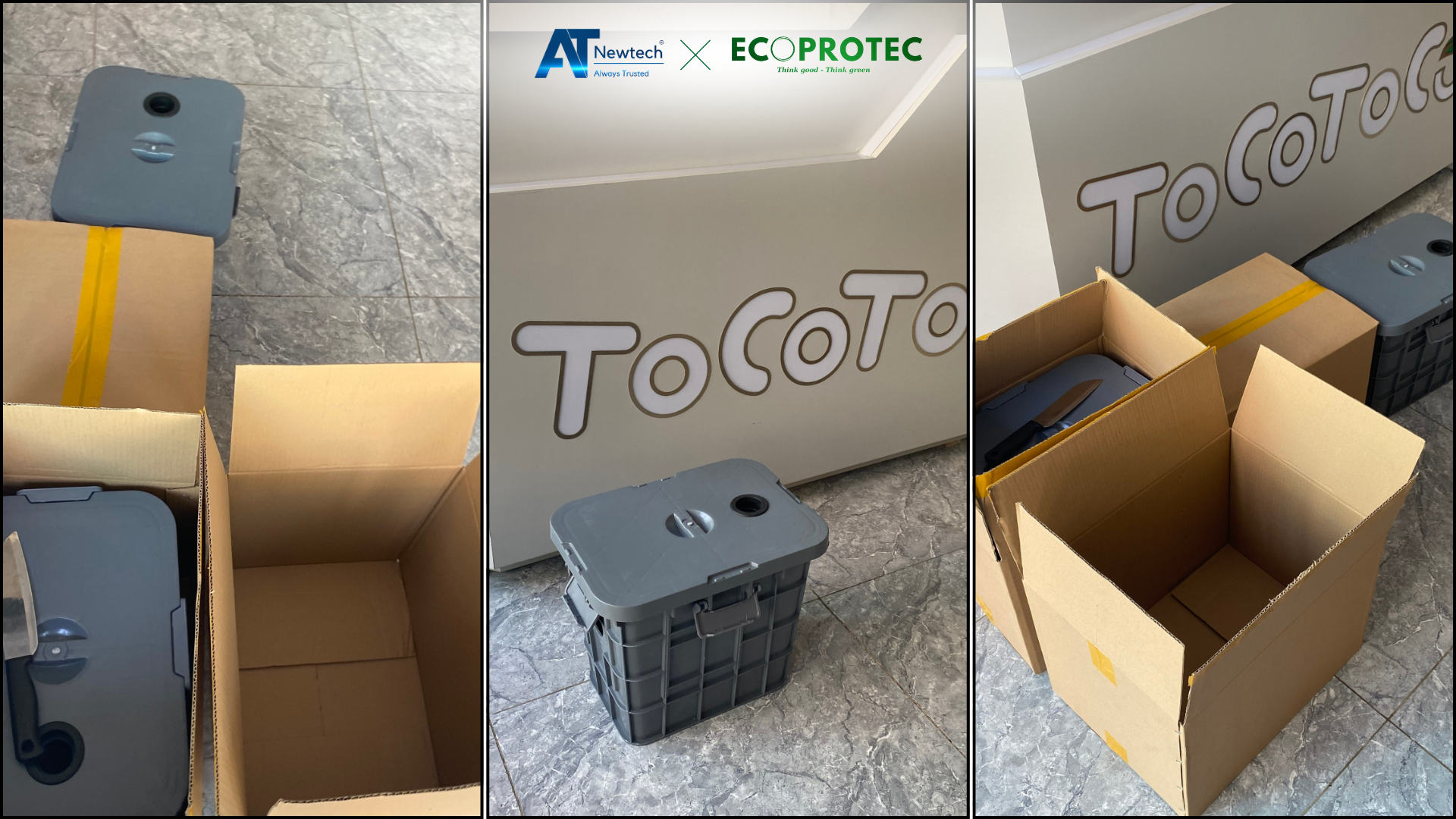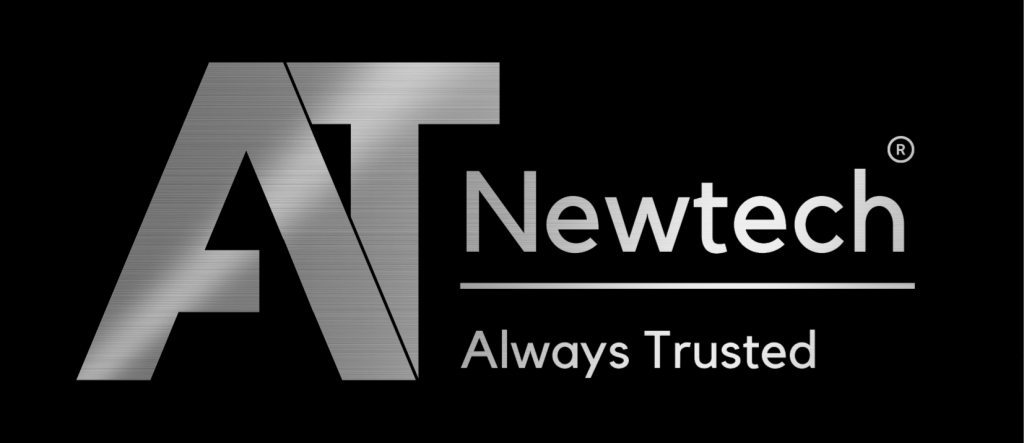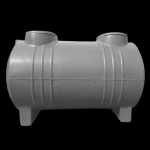Grease Trap for Sinks: Is It Really Effective in Oil and Grease Treatment?
1. What is a Grease Trap for Sinks?

2. How Does a Grease Trap for Sinks Work?

A grease trap works based on the principle of separating grease from wastewater through the density difference between grease and water. When wastewater from the sink flows into the grease trap, the process occurs as follows:
-
Initial Chamber: Wastewater enters the first chamber, where the flow rate is significantly reduced. This allows grease particles to float to the surface due to their lower density than water.
-
Grease Separation Process: In the intermediate compartment, grease continues to be separated and accumulates on the water surface, while heavier solid waste settles at the bottom.
-
Clean Water Discharge Compartment: Water, which has mostly had the grease and solids removed, flows into the final compartment. Here, the water meets standards before being discharged into the drainage system.
-
Grease Collection and Treatment: Grease accumulated in the initial and intermediate compartments needs to be collected regularly. Some modern systems allow the recycling of grease for other purposes.
This process ensures minimizing the amount of grease and waste directly discharged into the environment, helping protect the drainage system and the surrounding environment. When wastewater from sinks flows through the grease trap, the grease floats to the surface, while clean water and smaller waste are separated. This process not only protects the drainage system but also prevents blockages and reduces environmental pollution.
3. Benefits of Using Grease Traps
3.1. Protecting the Drainage System
Grease is a major cause of pipe blockages. Grease traps help prevent this phenomenon, reducing repair costs.
3.2. Contributing to Environmental Protection
Using grease traps helps reduce the amount of grease discharged directly into the environment, thereby limiting water and soil pollution.
3.3. Meeting Hygiene and Safety Standards
For restaurants and eateries, using grease traps is a mandatory standard to comply with food safety regulations.
4. Evaluating the Effectiveness of Sink Grease Traps
4.1. Advantages
-
High effectiveness in grease separation: A typical example is a large restaurant in Hanoi, where the drainage system was frequently blocked due to large amounts of grease from the kitchen. After installing the grease trap, the amount of grease in wastewater decreased by over 90%, allowing the system to operate smoothly and reducing sewer cleaning costs. In addition, at an industrial food processing facility, using a grease trap helped separate grease for recycling into biodiesel, reducing pollution and creating added economic value.
-
Easy Installation and Maintenance: Modern grease traps are compact, easy to disassemble for cleaning, suitable for both households and businesses.
-
Long-term Cost Savings: Grease traps significantly reduce pipe blockage risks, saving on drainage cleaning and maintenance costs.
4.2. Versatile Applications
-
Restaurants and Cafes: Commonly used to handle large daily grease outputs.
-
Households: Compact, affordable traps reduce pollution and protect home drainage systems.
-
Industrial Areas: Large-capacity traps designed for food processing plants and industrial kitchens.
4.3. Environmental Efficiency
-
Reduce Water Pollution: Large city restaurants have reduced grease discharge by 80% after installing grease traps, protecting local water sources.
-
Contribute to Grease Recycling: A major food processing plant collects waste grease for biofuel production, promoting green energy and economic value.
-
Protect Ecosystems: A lakeside residential area improved water quality and maintained aquatic ecosystems by implementing grease traps.
-
Contributing to grease recycling: Some of the grease collected from the traps can be recycled to produce by-products, helping reduce resource waste.
-
Initial investment costs: While providing long-term benefits, some high-end grease trap devices are quite expensive, especially imported models or those with large capacities.
5. Popular Grease Trap Types on the Market

-
Stainless Steel Grease Traps: Ideal for restaurants and hotels with durable, rust-proof designs.
-
Plastic Grease Traps: Suitable for households due to low cost and lightweight features.
-
Composite Grease Traps: Widely used in industrial zones, with excellent load and chemical resistance.
6. How to Choose a Sink Grease Trap
-
Determine the appropriate capacity: Depending on the daily wastewater volume.
-
Determine the appropriate capacity: Depending on the daily wastewater volume.
-
Consult reputable suppliers: Ensure that the product meets quality standards and comes with a full warranty.
7. Why Choose Ecoprotec’s Sink Grease Traps?
Ecoprotec proudly offers high-quality grease traps at reasonable prices.
We commit to:
-
A diverse range of products suitable for all needs, from households to industries.
-
Professional consultation, installation, and warranty services.
-
24/7 customer support via hotline: 0368172226 / 0834473166.
Sink grease traps are not only an effective solution but also a necessary choice to protect drainage systems and the environment. To optimize effectiveness, you need to choose the right product for your needs and maintain it regularly.
If you’re looking for high-quality grease traps in various sizes and designs, Ecoprotec is your trusted partner. Visit our website or contact us directly through our hotline 0368172226 / 0834473166 for free consultation and exciting offers.
Learn more:
-
Proper Grease Trap Cleaning Guide
-
Top 5 Best Grease Traps for Restaurants
Ecoprotec is with you in protecting the environment and improving wastewater treatment effectiveness.
Sink grease traps are an effective and necessary solution for grease treatment, environmental protection, and drainage system preservation. Contact Ecoprotec now to get the most suitable product and the best offers!

 Composite Tank
Composite Tank Water tank cover.
Water tank cover. Kitchen equipment
Kitchen equipment Industrial water tank
Industrial water tank


